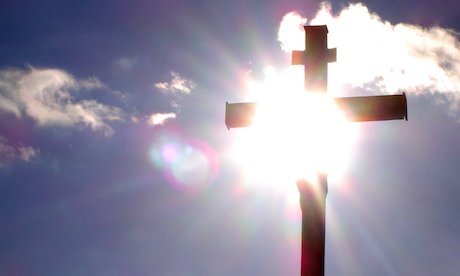We have reached our celebration of Easter, the centre of the Church’s liturgical year and the source of Christian life and faith.
Yet Easter often appears as the poor relation of Christmas.
Whether you believe or not, there is something about Christmas that manages to touch everyone. But without Easter there would be no Christmas.
In many ways, Easter makes more demands upon us.
The empty tomb is not like the manger: if we go there we do not find the beautiful, serene mother with her newborn baby, an adoring and gently protective father, and heaven and earth somehow caught in a silent moment of adoration.
At the empty tomb there is, well, an absence, not a presence. So, Easter really invites us into something utterly new.
It is rather frightening because it transgresses all our ways of thinking, what we know – or think we know – about the world and how we live in it.
We get used to ‘knowing’ in a particular way. We are uneasy with things we can’t master or that don’t match our categories.
We’re always trying to fit things into time, space, matter; even when we encounter something utterly new like ‘dark matter’ or particles that we know only by their traces, we want to fit them in to some familiar conceptual framework.
But the resurrection of Christ cannot be fitted in like that.
It is not something that we can master; it is only something we can receive. Continue reading.
Source: ThinkingFaith
Image: EPM
